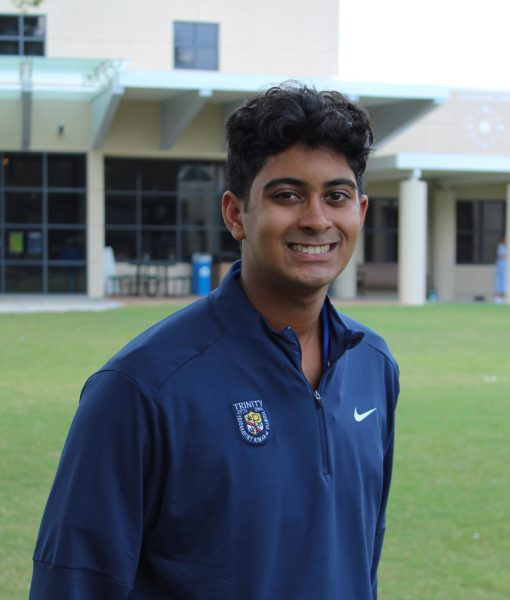From August to December, the front of the auditorium has been taken over by continuous bake sales and fundraisers, driving students away from participation. This phenomenon can be defined as “fundraiser fatigue,” or an unwillingness for students to continue donating. The first semester of the 2023-2024 school year was filled with endless fundraisers, including the candy cane sale, toy drive, holiday book drive, fundraisers for both Israel and Palestine, Canstruction, Trunk-or-Treat, Cancer Awareness Week, Maui fires fundraiser, SADD Club’s Red Ribbon Week bake sale and more. Since then, students have vocalized their concern with an influx in events.
“The more fundraisers you have, the less each one of them is special,” junior and student body vice president Connor Nanus said. “It’s going to make people not want to donate anymore.”
While involving more students in service-dedicated opportunities is a noble effort, it seems as though it leaves students unaware of where their money is going and dilutes funding for specific causes. A race to fundraise only decreases the value and amount of participation in community service in the student body – especially for recurring fundraisers like Rose Sale or Culture Fest.
“A couple of years ago when we would have a couple of big [fundraisers], you get a lot more participation,” said Nanus.
One reason for this overflow of smaller fundraisers is the new service element requirement for all Trinity clubs. As a result, most leaders are turning to hosting sales on the school campus to raise money to donate to an organization. Since the business office takes care of the financial aspect of the event, students only have to organize what they are selling and spread awareness.
“I feel that clubs are a great opportunity for kids to get to know the Trinity community even more and not be required to do anything,” Key Club President and senior Rhea Maniar said. “[Requiring] community service which requires passion, dedication and motivation, is really frustrating.”
Donation fatigue regarding too many fundraisers is growing amongst the student body, leading some to avoid fundraisers altogether, overwhelmed by new choices.
“We can’t have fundraisers all day, and I think that might be something that’s brewing amongst people,” said Assistant to the Upper School Head Sebastiaan Blickman, who oversees clubs. “The conversations I’ve had with club leaders show me that they’re starting to think about how to engage the students.”
Some club leaders have already taken to the drawing board to create alternatives to traditional fundraisers. For example, the Competitive Chess Club put on a school-wide chess tournament for students and staff to raise funds for the Boys and Girls Club.
“There are other avenues to engage the community and to get support for their areas,” said Blickman. “Each of our clubs can do something more creative and unique.”
This semester, club fundraising should take a different direction, focusing on community engagement rather than monetary gain.
“If you include student participation, I believe that you can get not only more people, but honestly make fundraisers a bit more special than just bake sales,” Competitive Chess Club co-leader and senior Jasur Talipov said.
More traditional service-oriented clubs are also seeing an issue with fundraisers on campus. Key Club, for example, is a club dedicated to service that connects students with projects to better the community. With waning support for fundraising participation, these clubs are worried about future participation.
“I’m worried that people won’t be as willing to give to the Rose Sale because there will be fundraisers going on at that same exact week,” Maniar said.
There is nothing special about donating anymore. Avoiding overwhelming students with fundraisers makes all the difference for what it means to be charitable. Engaging the student body requires steering students away from desensitization – where they no longer feel responsible for or connected to a cause.
“People are going to be so desensitized to [fundraisers] that it’s not going to matter anymore,” Maniar said.
Fundraisers should remind students of the difference they make by following up with results and focusing on the importance of the cause, not the cookies. Additionally, clubs should focus on activities or events that work to involve the student body and their participation, instead of a quick transaction in front of the auditorium.
“It becomes less about the cause they’re donating to and more about what they can buy,” Talipov said.
In order to restore the integrity of fundraisers on campus, students need to keep it special.
“When it comes to things like the Rose Sale for Key Club that happen every year and are kind of an institution here, people are going to be so desensitized to it that it’s not going to matter anymore,” Key Club President Rhea Maniar said. “We’re just diluting the true meaning of service.”
The lead editorial expresses the opinion of the Trinity Voice editorial staff. Please send comments to [email protected].














